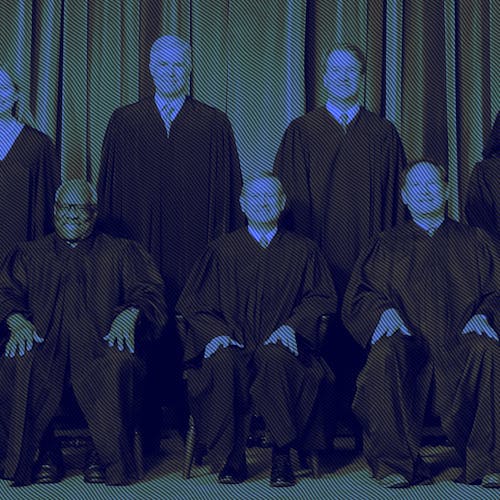BANSAL: Supporters of pro-life movement have ironic justifications

Bodily autonomy is a term that dictates how we carry, use and control our own bodies. It plays a role in how we situate ourselves in everyday issues, legal situations and even medical responsibilities — especially when it comes to abortion rights. By giving states the individual rights to regulate abortion services, many movements and ideologies have been pushing the public to oppose women's rights to those services. These pro-life groups push to limit women's rights to have control over her own body.
Within the past year, states have begun to individually place as many bans on abortions as possible. State governments make this possible by extending the wait periods for women to get legal abortions, placing bans after a few weeks and regulating abortion clinics — which is arguably the most clever ploy taken by pro-life groups. By shutting down and limiting the rights of abortion clinics, abortions are not technically against the law, but impossibly difficult to get. Although it’s been over 40 years since abortions were legalized in the United States, in recent years states have been working to make sure the procedure is nearly unattainable for those who seek them. North Dakota, for example, decreased its abortion limit to 6 weeks in 2010, a point where most women don’t even know they’re pregnant.
In addition to this, necessary public funding for abortion services are being cut, categorizing abortion cases as something that is not a proper medical procedure. This is known as the Hyde Amendment, which has been around since 1976. As they seek out medical coverage for pregnancies, medical insurance programs refuse to give medical coverage for most abortion services, viewing it as an unnecessary, nonmedical procedure. This is unfair because abortion services are often completely necessary. Because of these obstacles, many women seek out desperate measures that are often under-the-table, unsanitary and dangerous, for their abortions. Before abortions were legal, 5,000 women died annually due to these covert procedures.
Thus, labeling the anti-abortion movement as pro-life has a sense of irony in it. For the fetus that does not have a life yet, we sacrifice thousands of women’s lives. These women have established careers, families, relationships and hope for their futures. Forcing them to throw that all away is beyond comprehensible. Additionally, many women in need of these services seek abortions because they cannot provide a future for their baby, due to their age, financial stability or a myriad of other circumstances. According to research at the Guttmacher Institute, “In 2011, the unintended pregnancy rate among women with an income below the federal poverty level ($18,530 for a family of three that year) was more than five times that among women with an income at or above 200 percent of poverty.” If a woman cannot provide for herself properly, the child she is being forced to have will certainly not have the brightest future or one that is financially stable — a fact that pro-life activists should take into account.
President Donald J. Trump’s infamous recent executive order on abortions is under speculation amongst pro-choice activists. The Mexico City Policy cuts U.S. funding for non-governmental organizations if they perform or promote abortions, making it more difficult for women to use these services nationwide, despite the fact that U.S. funds do not pay for the organization's abortions, as per the Helms Amendment. This policy (majorly overseen by men), reduces a woman’s rights to her own body, but also severely affects the people around her. Without international organizations operating their share of abortion services, it is predicted that 2.1 million unsafe abortions, as well as over 21,000 maternal deaths, could occur in our near future. This policy brings up a plethora of questions. Why are men deciding what women do with their bodies? Why is the nation working to value the lives of unborn fetuses, a bundle of tissues and cells, over the lives of actual mothers? The reinstatement of this policy should not just be under speculation by a select few, but by everyone. The unintended deaths of thousands of women a year should be a matter everyone should be fixing. Pro-life groups work to take away the right a person has to their own body. Bodily autonomy is not a feminist idea, it’s a basic human right.
Priyanka Bansal is a Rutgers Business School first-year double majoring in business and journalism and media studies. Her column, “Call for Change,” runs on alternate Tuesdays.
YOUR VOICE | The Daily Targum welcomes submissions from all readers. Due to space limitations in our print newspaper, letters to the editor must not exceed 500 words. Guest columns and commentaries must be between 700 and 850 words. All authors must include their name, phone number, class year and college affiliation or department to be considered for publication. Please submit via email to [email protected] by 4 p.m. to be considered for the following day’s publication. Columns, cartoons and letters do not necessarily reflect the views of the Targum Publishing Company or its staff.



